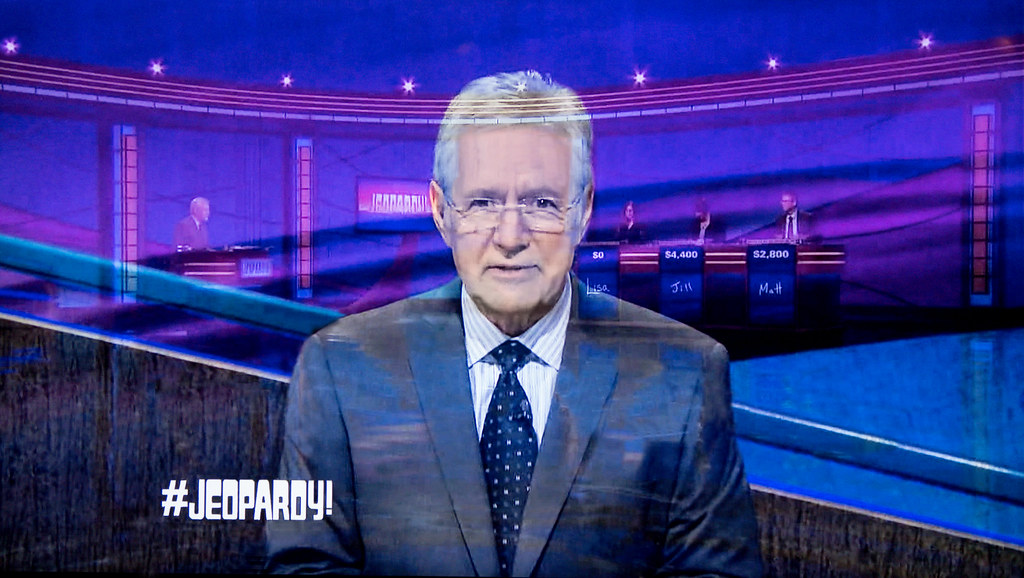
My father loved Jeopardy. He had a vast supply of general knowledge and would have been a great contestant if the categories were limited to art, sports, history, geography, and pop culture of the 1940s. If he knew the category, he could come up with the answers swiftly from the comfort of his lounge chair. I knew he would never win in person as his overall anxiety would have made it impossible to press the button first to give the answer.
My parents loved most of the game and quiz shows that were popular when I was growing up.
Nevertheless, Dad persisted and insisted on watching this show, starting with those hosted by Art Fleming from 1964-75. When Alex Trebek became the host in 1975, my father’s addiction was even stronger. I think Dad watched almost every show until the end of his life. It wasn’t much fun to watch with him, as his recall of facts in the categories that he deemed the good ones was swift and amazing. If I beat him in what he called the dumb categories, things like movies or music or celebrities after 1949, he called foul and I quickly learned his version of watching Jeopardy was too competitive and stressful for me.
My parents loved most of the game and quiz shows that were popular when I was growing up. Their favorite was You Bet Your Life, hosted by Groucho Marx with announcer and straight man George Fenneman. The show moved from radio to television in 1950, and I remember watching them laugh hilariously at Groucho’s antics, some of which I understood. Groucho made jokes at the expense of the contestants and poor Fenneman, much of which was ad-libbed on Groucho’s part. I remember his cigar and, of course, the duck that would come down to give the contestants $100 if they said the “secret word.”
We also watched I’ve Got A Secret, hosted by Gary Moore because my parent loved him and his panelists Bill Cullen, Jayne Meadows, Henry Morgan, Kitty Carlisle and Betsy Palmer. The concept was pretty simple. The contestant had a weird, interesting, funny and/or unusual secret that was whispered in the host’s ear and revealed to the audience. The panel received a clue and then asked yes or no questions to try to guess the secret. That was the whole concept, more for laughs by the witty panelists than for the secret itself.
A variation on this theme was To Tell The Truth, hosted by Bud Collyer. Again, there was a panel of celebrities including Kitty Carlisle (again), Orson Bean, Polly Bergen, Tom Poston, Peggy Cass, Bill Cullen, and Don Ameche. Each contestant claimed to be the same person and panelists had to guess which one was telling the truth. The imposters could lie but the actual person had “to tell the truth” when questioned. At the conclusion of the show, Collyer would say, “would the real (name of person) please stand up.”
Another similar show we watched was What’s My Line hosted by John Daly and featuring panelists like Arlene Francis, Steve Allen, Bennett Cerf, Fred Allen, Tony Randall and Dorothy Kilgallen. The celebrity panelists were supposed to guess the guest’s occupation, once again by asking witty yes or no questions. At the end, panelists were blindfolded to guess the mystery guest’s line. The guests tried to disguise their voices and included people like Warren Beatty, James Cagney, Bette Davis, Ty Cobb, Walt Disney, Ronald Reagan, Alfred Hitchcock, and Elizabeth Taylor.
Soon, shows that billed themselves as “real” tests of knowledge emerged. On The $64,000 Question, hosted by Hal March, contestants entered an isolation booth and appeared to struggle to answer very difficult questions. This show and Twenty One, hosted by Jack Barry, were part of a huge scandal when it was revealed that the more likable contestants were given the answers ahead of time and their anguish in the isolation booth as they tried to come up with the answer was entirely faked. When turned out that Charles Van Doren, a popular contestant on Twenty One, was more of an actor than a genius, this type of show was finished. It was at that point that my father turned back to Jeopardy to prove his smarts.
There were two shows from that era that I watched secretly with my mother. Dad would have hated them, and in retrospect, they were pretty awful. Queen For A Day, hosted by Jack Bailey, featured women who shared their tales of woe with the audience. Their stories were all quite pathetic, but the one that was the saddest of all became Queen for a Day and received a prize like a refrigerator that didn’t come close to solving her problems. Still, she was crowned on television and cried tears of joy. The other forbidden fruit was This is Your Life, featuring Ralph Edwards as host. The guest was sometimes a celebrity like Bob Hope, Bette Davis, or Jack Benny. The honorees would have their life story told, culminating in a mystery guest from their past who would speak off-stage and then come out to a flood of tears when the honoree realized who they were.
After I left home, I didn’t watch quiz or game shows, which became increasingly less intelligent and witty and more based on greed, stupid challenges, and “reality.” Except for Jeopardy. My husband liked to watch it occasionally, so I kept him company. When I was with my father, I generally avoided watching because the older he got, the more he grumbled or gloated. And then came Jeopardy James, and I was hooked. For 33 days from April to June, 2019, the affable James Holzhauer, gambled outrageously to win a total of $2,464,216. During his run, we taped the show to watch at night. Then he lost, my interest waned, and sadly Alex Trebek died.
Thus, I ended my brief flirtation with my own version of Double Jeopardy. Perhaps another great host and charismatic winner will lure me back?
I invite you to read my book Terribly Strange and Wonderfully Real, join my Facebook community, and visit my website.
Boomer. Educator. Advocate. Eclectic topics: grandkids, special needs, values, aging, loss, & whatever. Author: Terribly Strange and Wonderfully Real.


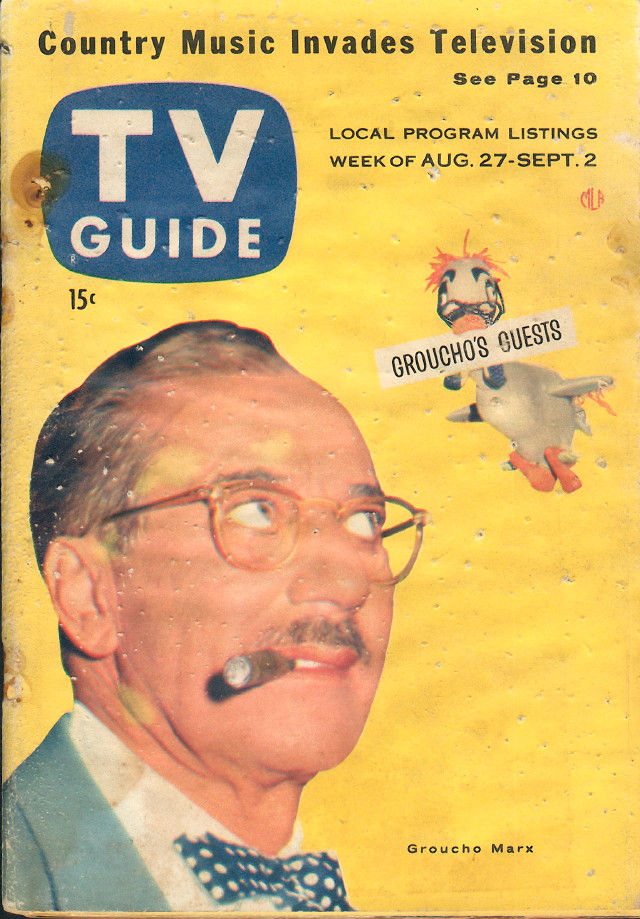
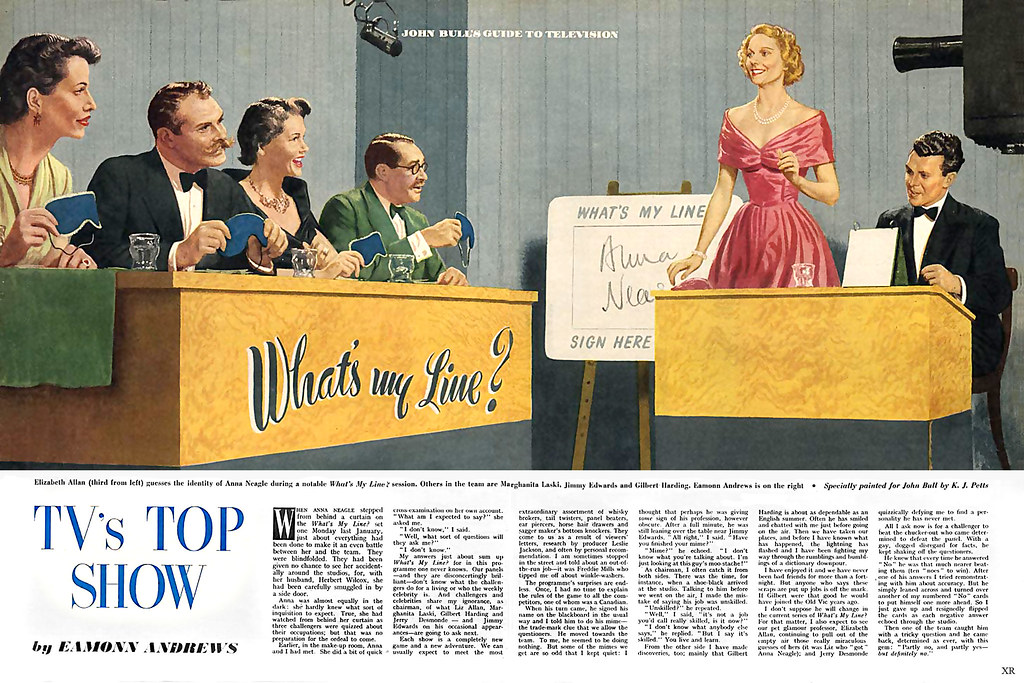
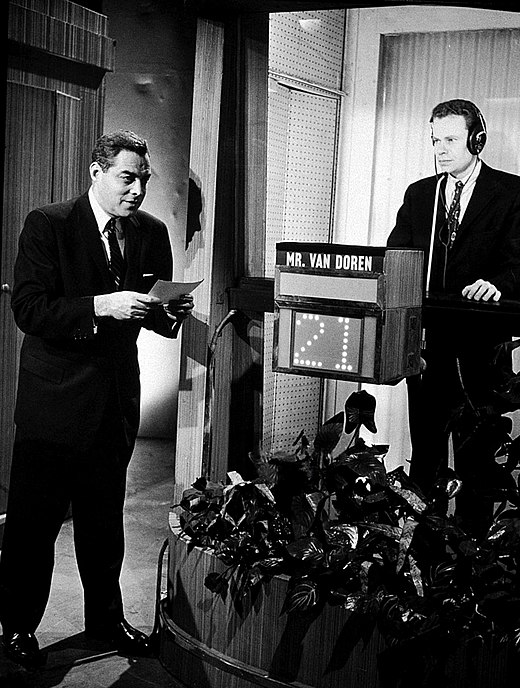
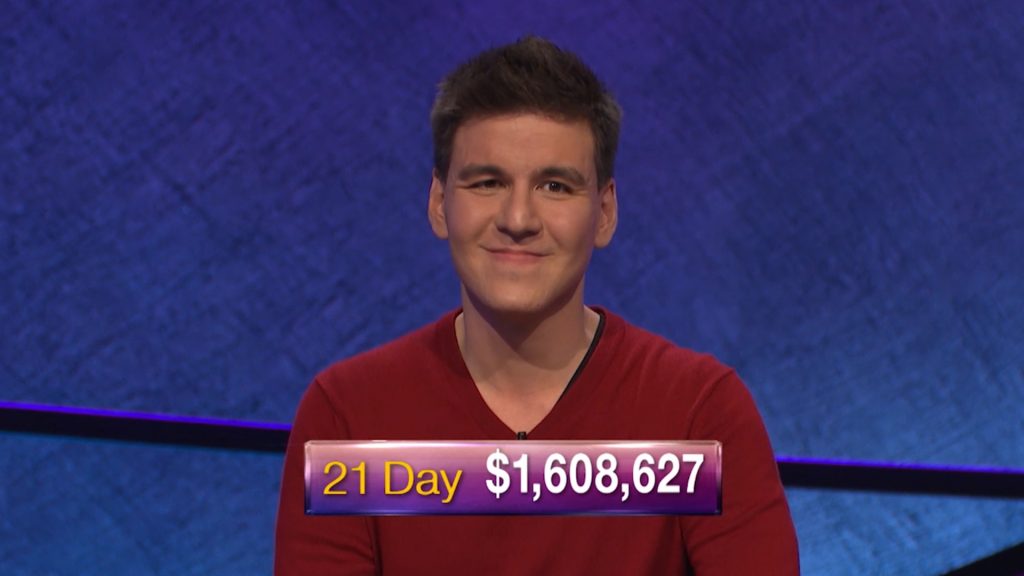
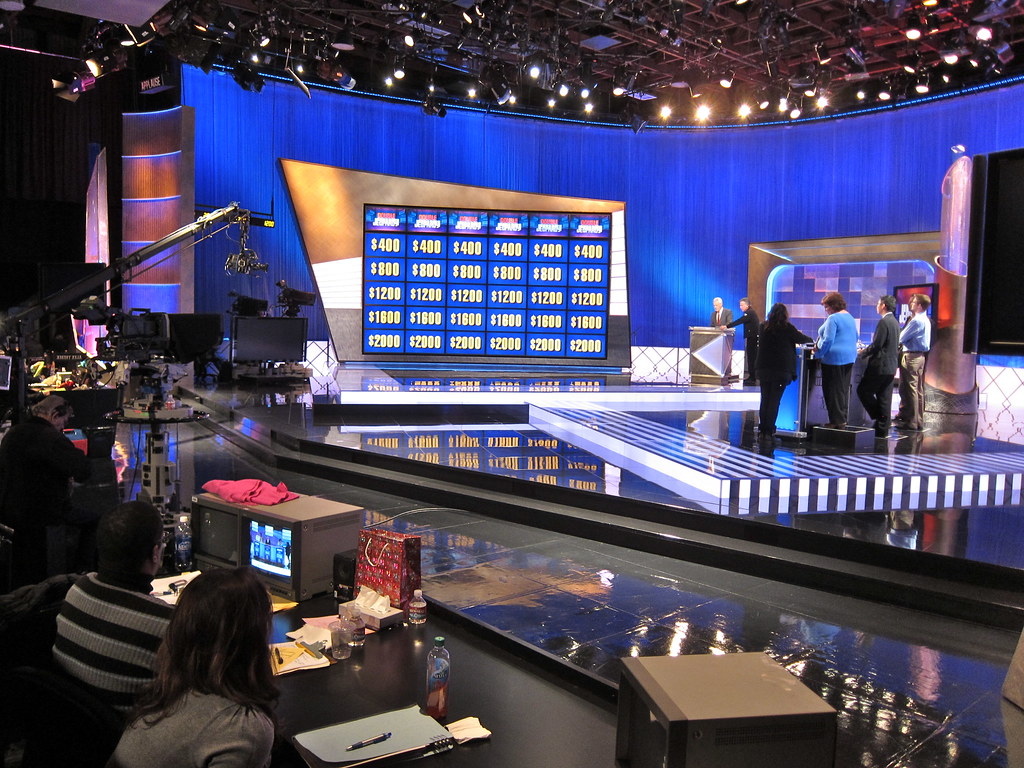

Great run down of those early game shows, Laurie. You brought back a lot of memories for me, as my family watched many of them too. What fun!
We have become serious Jeopardy fanatics in this household. With Alex gone, we are ranking the guest hosts. Some are doing better than others, but we’ve come to love and appreciate Alex all the more for his ease and erudition. He made it all look so effortless and clearly, it was not.
So true of anyone who is really good at something. They make it look easy, which is their unique talent. His will be a hard act to follow.
Thanks for the great trip down Quiz Show Memory Lane, Laurie. You really did a masterful job of doing so and I thoroughly enjoyed it. I remember all of the shows you noted and (pretty much) all of the contestants.
And here’s one bit of “insider” info I can give about “You Bet Your Life.” My parents were college pals with a guy named Howard Harris. (By pleasant concidence, I am now pals with his step-daughter and her husband.) Howard was a very successful comedy writer in the 1950’s, most notably for the Jackie Gleason Show and Groucho’s You Bet Your Life. Howard said that Gleason was brilliant but lazy and frequently drunk. He also said Groucho was brilliant but difficult to work with.
But here’s the rub: per Howard, all of Groucho’s clever “ad libs” were, in fact, carefully scripted and rehearsed with the contestants. To be sure, Groucho came up with a lot of them himself, but, per Howard, not at the spur of the moment.
Another myth shattered, no?
Oh no, John — another myth shattered indeed. No surprise that Gleason was a drinker but Groucho rehearsing those quips with contestants ahead of time and not writing all of them himself? So disillusioning. Glad my parents didn’t know that!
As you described all those shows and the celebrities associated with them, it really sparked my memories. Either you have an incredible memory, or did a good job googling their names. The pictures are great too. Jeopardy would win hands down as the one show most of us continued to stick with over the years. We share so many memories of TV and radio maybe because there were fewer sources back in the day–three TV channels and no competing podcasts or cable or netflix or spotify etc etc. There was a time I watched almost no TV–and started to feel cut off from cultural references.
My memory is not as great as it once was, so I must confess I resorted to the Google machine. On the other hand, my memories of Jeopardy and my father are still pretty vivid, even though he’s been gone nine years.
What a wonderful compendium of our game and quiz show culture, Laurie, especially those early shows!
From what I’ve read so far, no one has mentioned Pyramid, a very popular word association game, so I’ll just give it a shout-out here. Though not of the calibre of Jeopardy, it did require some smarts, and since all of us are “wordies,” I think it’s noteworthy. I wonder if your father every watched it, and if so, what he thought of it.
I don’t think we watched that one, Barb. My father was extremely loyal to Jeopardy as he could often beat the contestants to the punch. Of course, that’s much easier to do from the comfort of home.
Great recap of a lot of shows, Laurie. The ones from the 50s now seem really quaint, don’t they? The most fun was reading the names of those panelists. Talk about nostalgia! We watched To Tell the Truth a lot, which, aside from Jeopardy!, is my favorite of the bunch.
It was a fun trip back to my childhood and pleasant memories of sharing those shows with my parents.
You and I share the Queen for a Day experience, and we said almost exactly the same things about it. I also loved You Bet Your Life, and am crushed to read John’s comment about the so-called ad libs. I wonder if Groucho’s line about the cigar, which supposedly got him thrown off the air, was scripted or not.
Yes, it was sad to learn the truth from John about Groucho. When I think about Queen for a Day now, I feel manipulated to have rooted for the woman with the most pathetic story. I wish they had really helped these women in a meaningful way instead of using them to attract viewers like me and my mother.
Great post, Laurie! We overlap on one show, so if you read mine, you’ll see which one. I believe on this show, the contestants were shown the questions, but not given the answers. Still, not playing fair. This was fun to read–all those great panelists! Names that were well-known at the time for just this reason.
Yes, Risa, those panelists were usually clever and witty, which was the point of those shows. I wonder how the contestants on $64,000 questions researched the answers without the Google machine. That took some challenging research which I guess should be applauded. I thought they were fed the answers as well as the questions.
Thanks for looking up the names—they all were familiar though I wouldn’t have been able to retrieve them without help either. I miss my dad too—and remember him well, now seven years on. I understand the importance of remembering ancestors the closer I get to being one. Loved the Pixar film Coco for that.
That was a great film. I saw it with some of my grandkids, which used to be my excuse to watch animated films. The lesson was powerful but I’m not sure the kids got it.
Thanx Laurie! These stories have brought back many forgotten names which I now remember more than I remember actually watching the shows!
The only quiz I watch now is, of course Jeopardy, and just last night on a rerun with Alex Trebek not one of the contestants got the final Jeopardy question.
It was right up my alley and I knew it in a flash – American playwright passed over for his 1963 controversial drama who went on to win 3 Pulitzers.
Retro friends, do you know who?
Who is Edward Albee???
Yep!